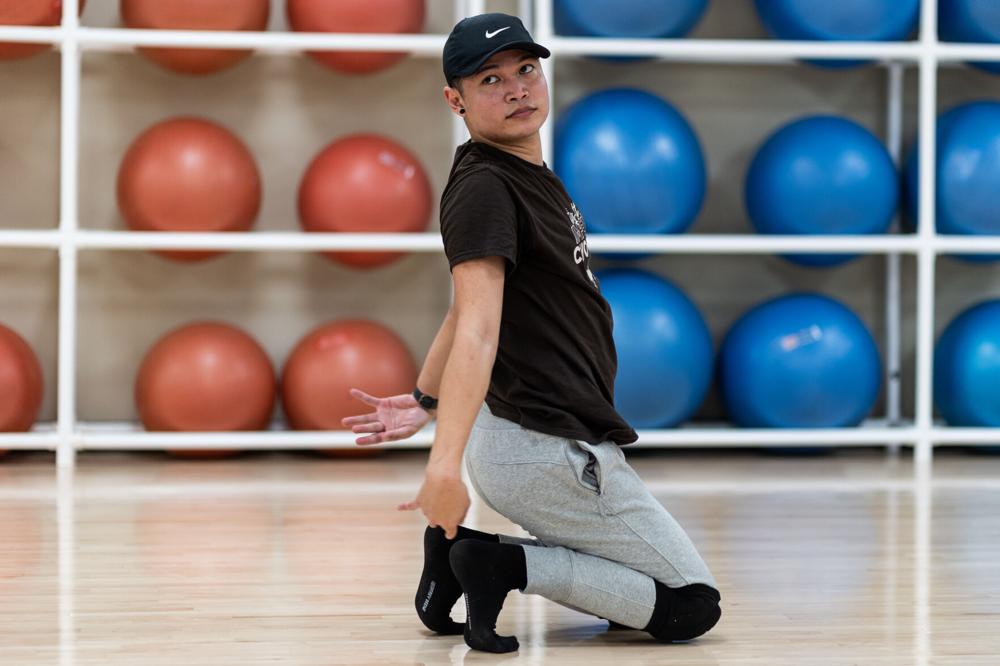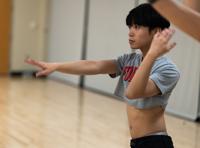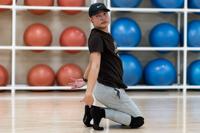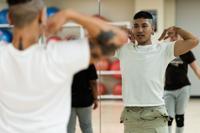
Work. Shade. Vogue. Serve.
The popular, snappy verbiage wasn’t created overnight. It stems from Black and Latinx gay and transgender communities originating in the Harlem, New York City ballroom scene.
“Language today is really based around old ballroom lingo that’s been here since the 1970s,” environmental science junior Jon Sangel said.
The University Ballroom Scene Alliance, or Unikiki, has officially hit the UTA scene. “Uni,” for university, and “kiki,” for having fun, combine to create a name “uniquely” made for the group.
Founded this year, Unikiki president Sangel said the group aims to spotlight and educate people on the ballroom scene. They want to create a safe space for LGBTQ+ students or those who need a home away from home.
“I really want to create a community where it’s more family oriented, just like the real origins of ballroom,” Sangel said.
The Harlem ballroom scene was created after predominantly white gay balls discriminated against Black and Latinx queens who competed in pageants, according to the Gay and Lesbian Review.
House cultures were built on chosen families for those who found love outside their biological family that might have disowned them. Led by a house mother or father, the groups provide younger members with a supportive, nurturing network to live freely and authentically.

Computer science senior John Calma and Sangel share the same kiki house, Nike, with notable house icon and drag queen Kennedy Davenport. A former “RuPaul’s Drag Race” contestant, Davenport performed at UTA’s A Decade of Drag show last October.
Unikiki vice president Calma said he wants to keep support for these icons going, especially without a dedicated LGBTQ+ Program to make events happen. With a larger scene mainly in Dallas, the group wants to cater to students who may be interested but don’t have the means to travel to the city.
“Now that I am part of the ballroom scene here, I’m more expressive of myself, and that’s a really good thing to experience,” Calma said. “I want to share that to the students here as well.”
Texas Senate Bill 17 went into effect Jan. 1, barring all state-funded colleges and universities from establishing or maintaining many diversity, equity and inclusion practices on campus. Many LGBTQ+ resources fell under that umbrella.
Anticipating the law’s restrictions on other underserved communities, Sangel began thinking about forming their own organization to create a safe space for LGBTQ+ students.
The group hosts weekly dance workshops gathering anywhere from 10 to 16 participants, where they do nothing short of “eating” and “serving.” Lessons so far have been over catwalk, duckwalk, hands, floor, spins, dips and runway.

Sangel said he intends on incorporating historical or cultural lessons with each workshop. Until they get a consistent group of official members, officers plan to postpone general body meetings but continue the workshops with both educational and physical elements.
“One big point that I wanted to make was that if you’re learning the dance but you’re not learning the culture, it’s essentially cultural appropriation,” Sangel said.
Music is arguably one of the most important parts of voguing. Each song should be around 128 beats per minute and made up of different lyrics, noises or instrumentals, art education senior Taylor McMillan said.
During workshop, Sangel led the charge calling out 16 counts as he demonstrates safely falling into a floor dip and recovering into a final pose. As he keeps the rhythm for officers and participants next, he said he enjoys watching others progress.
Unikiki treasurer McMillan is considered a “007,” meaning she has yet to have a ballroom or kiki house. Still trying to catch her “flow,” she said her dances are usually a mixture of random moves or ideas she thinks of while voguing.

After dancing solo for a few songs, members pair up to battle. After rounds of winners challenging winners, one attendee came out on top. Despite the competition, there was nothing but cheering and encouragement among members.
Making friends with the person you battle is part of the challenge as well, Calma said. Even if they don’t like each other, it’s still customary to be a good sport, put the “shade” aside and hug afterward.
“Even though we’re in different houses, everybody, essentially, is part of a family together,” Sangel said. “We all have, not the same struggles, but the same ideas where we’re looking for a family outside of our family.”
Those interested in being a part of Unikiki can fill out membership forms on its Instagram @unikiki.uta and pay a $10 due per semester. As the group still determines dates and times for activities, Sangel said they’re anticipating hosting a Halloween Ballroom event and fundraiser Oct. 31, with more information to come. They also plan to collaborate with groups on and off campus.
Following a month of operation, Sangel said he can see the organization growing so long as the officers stay engaged and keep their programming consistent.
“Ballroom is like a form of empowerment for queer people,” he said. “Basically, [I want them] to feel the empowerment that I’ve gotten through ballroom.”
@hjgarcia0

















